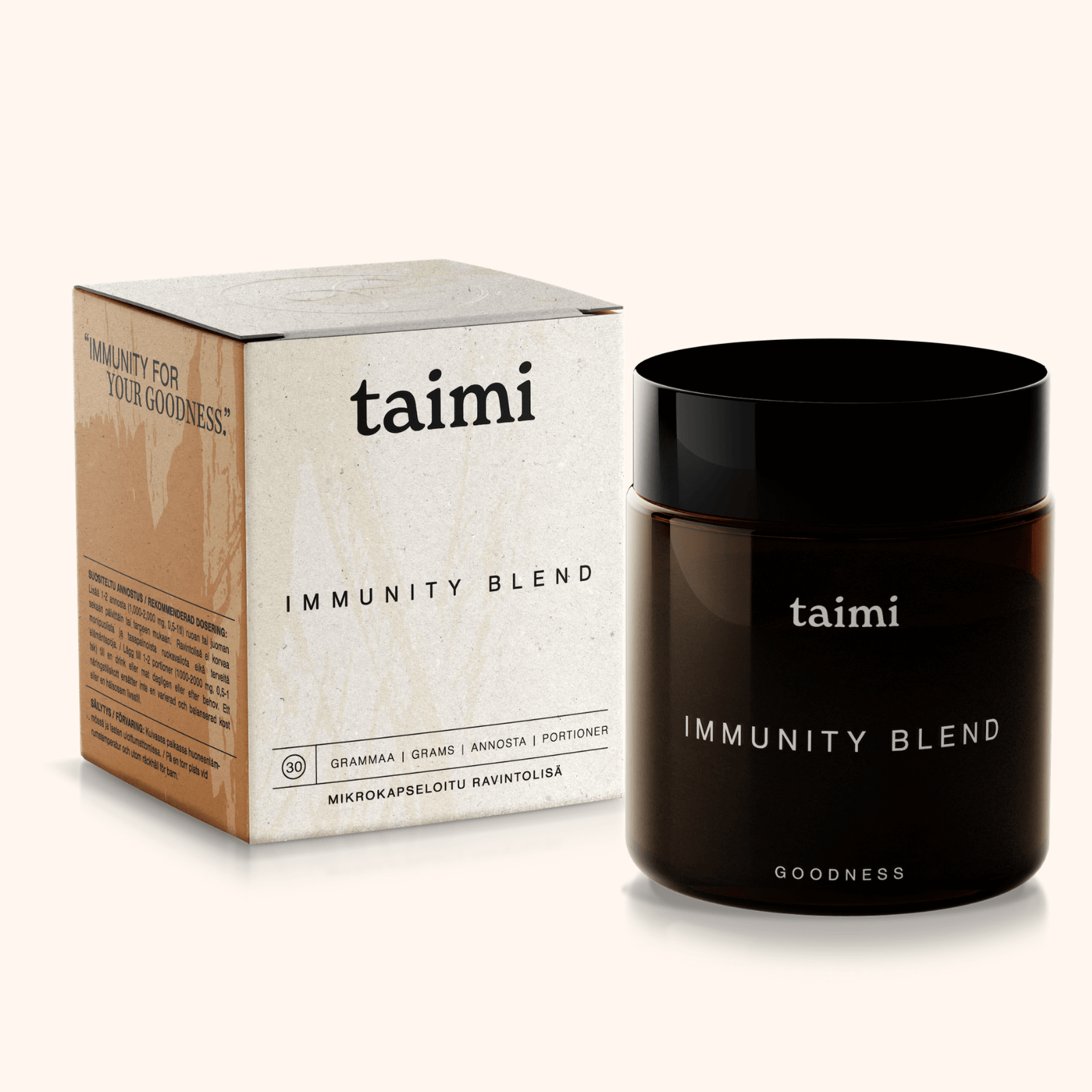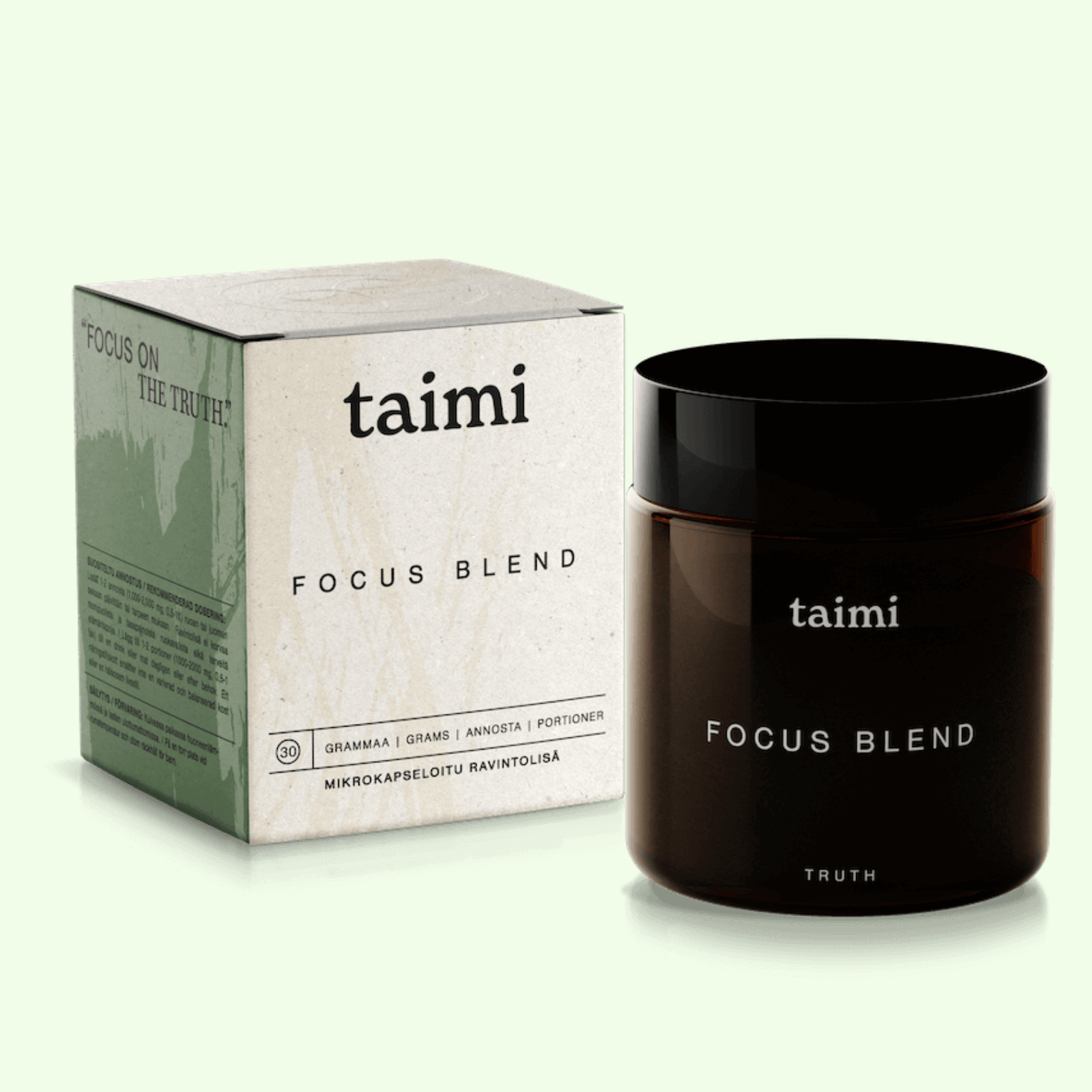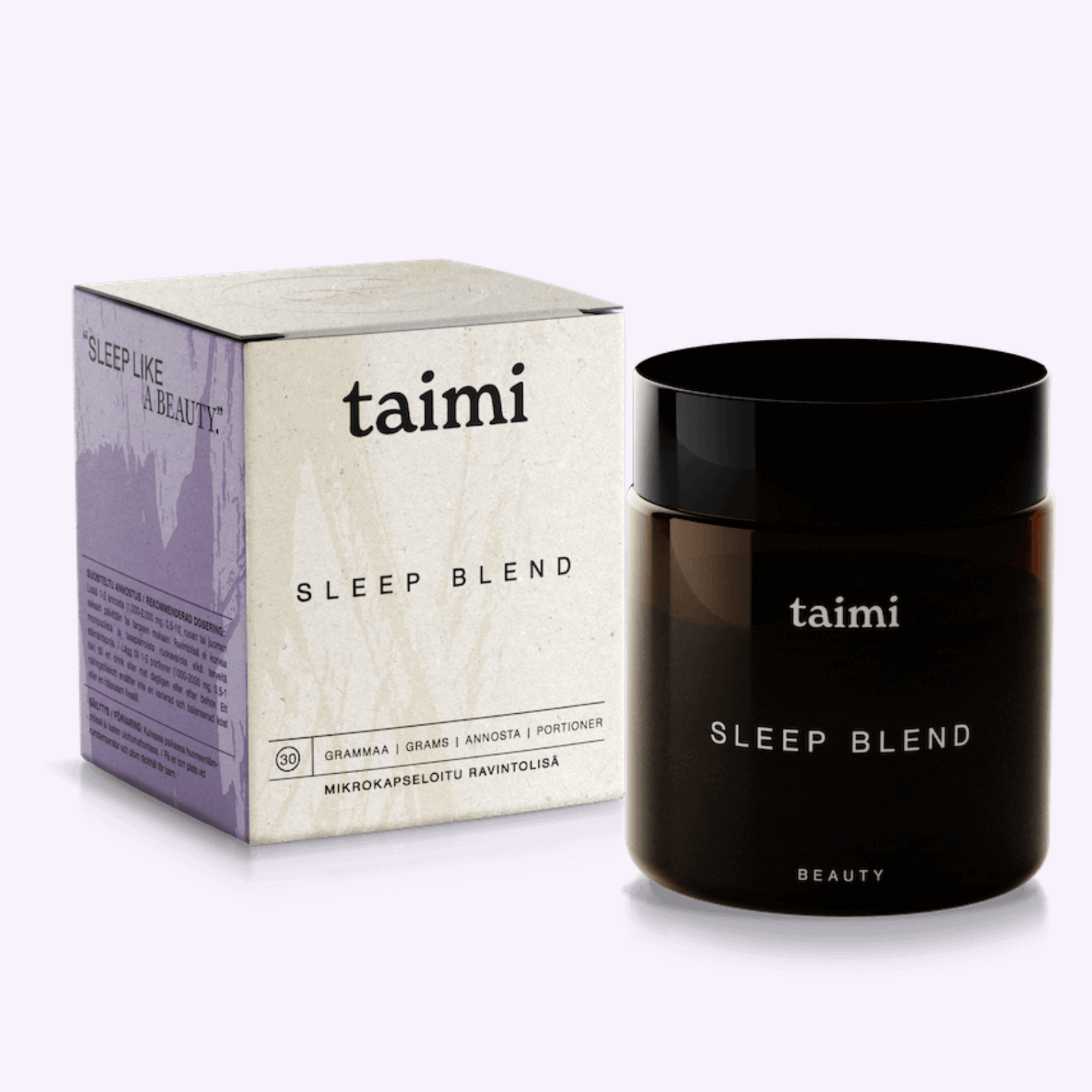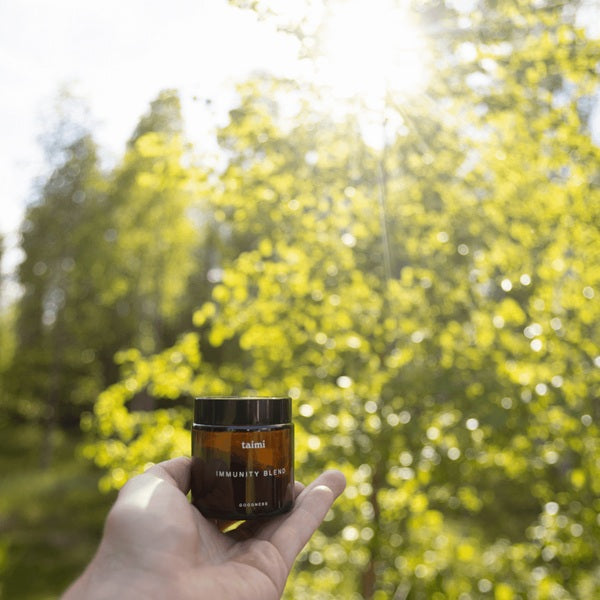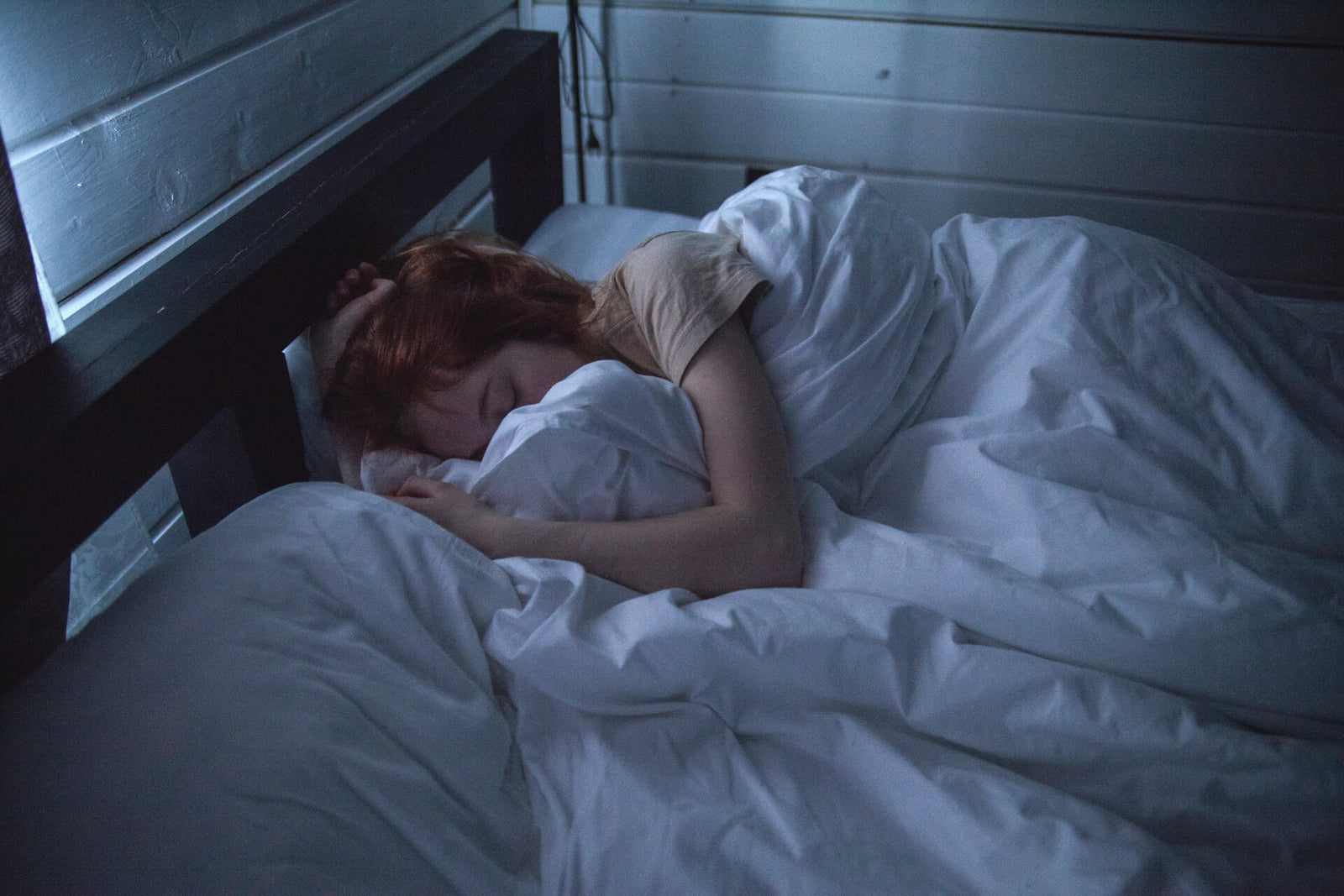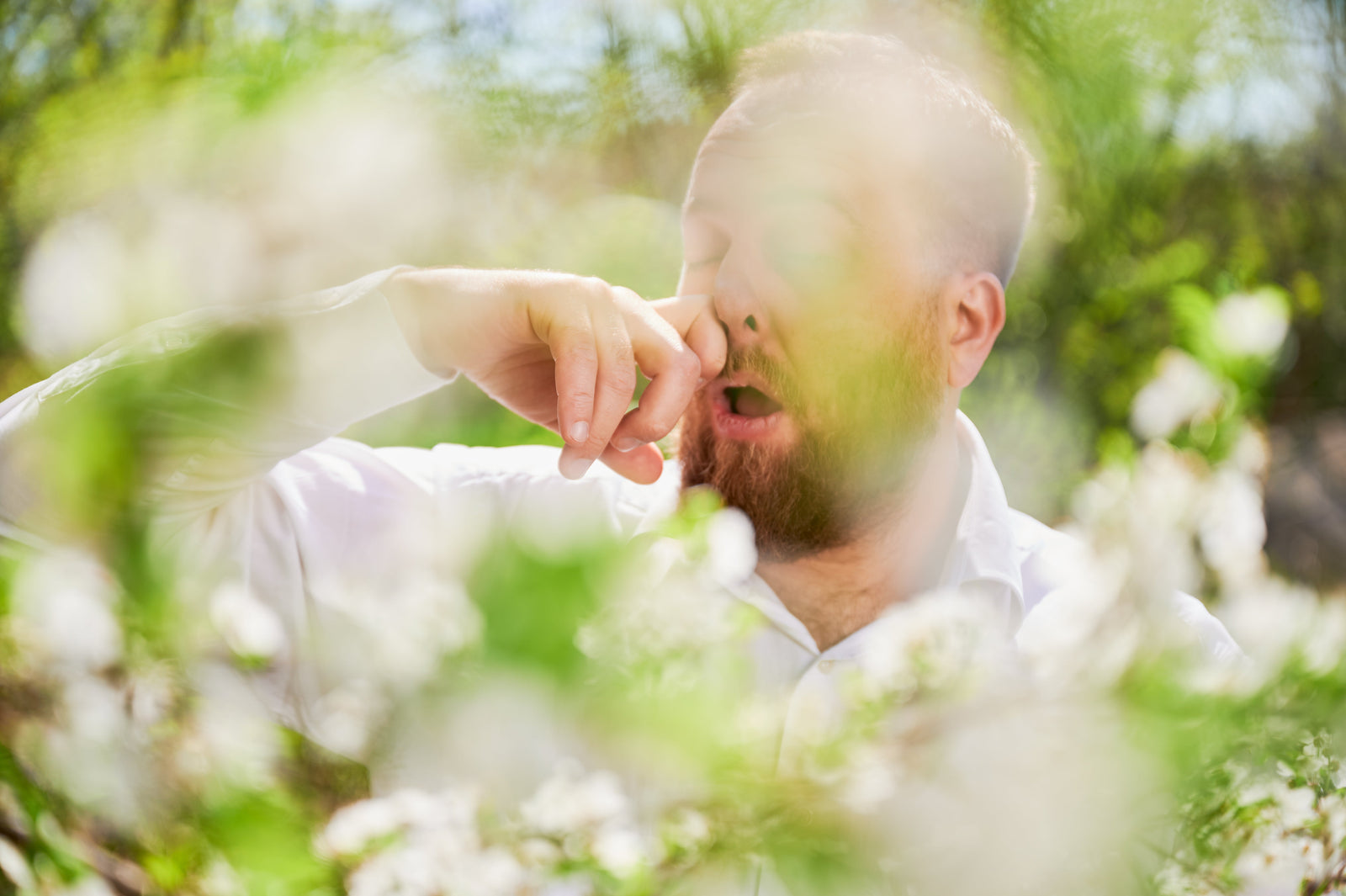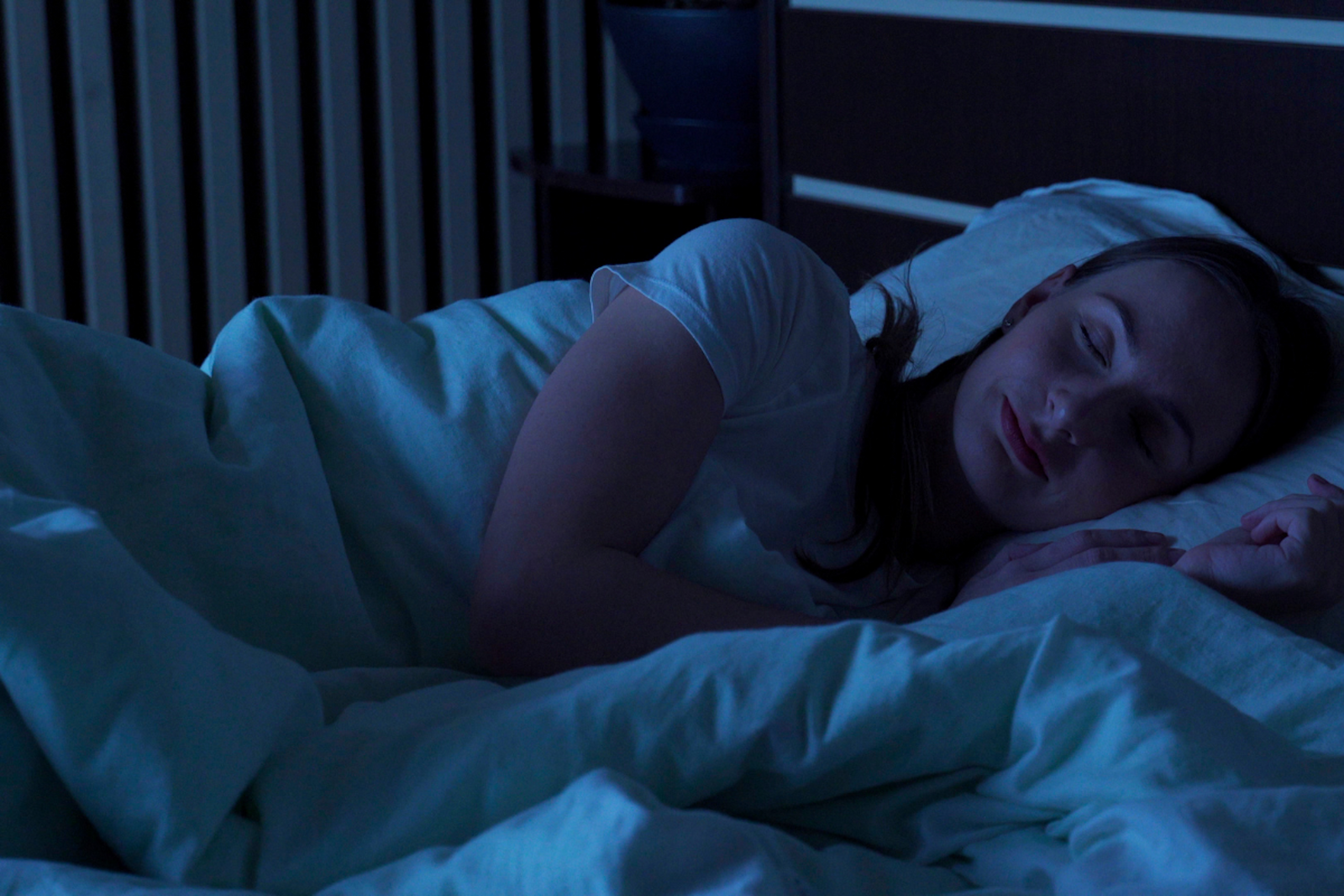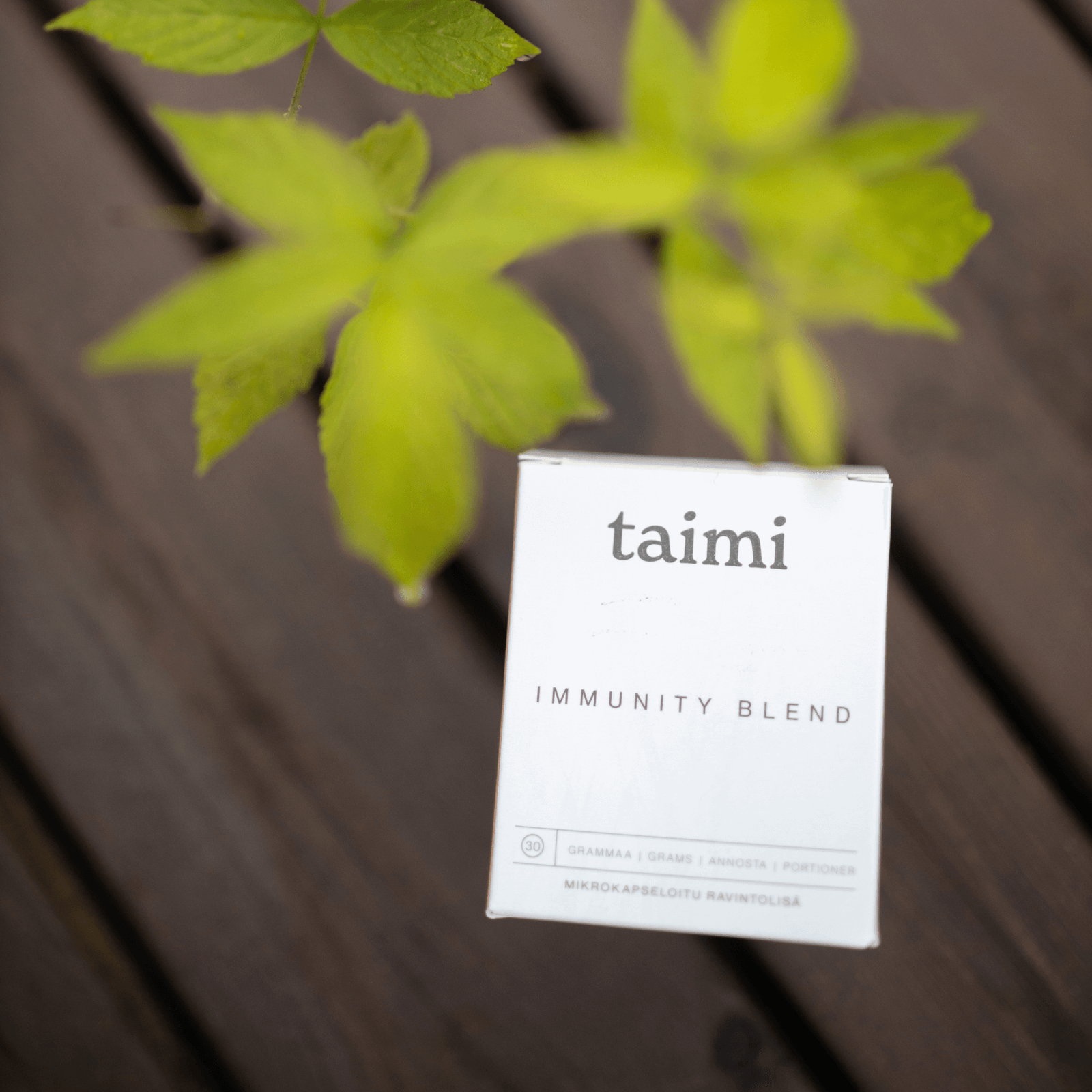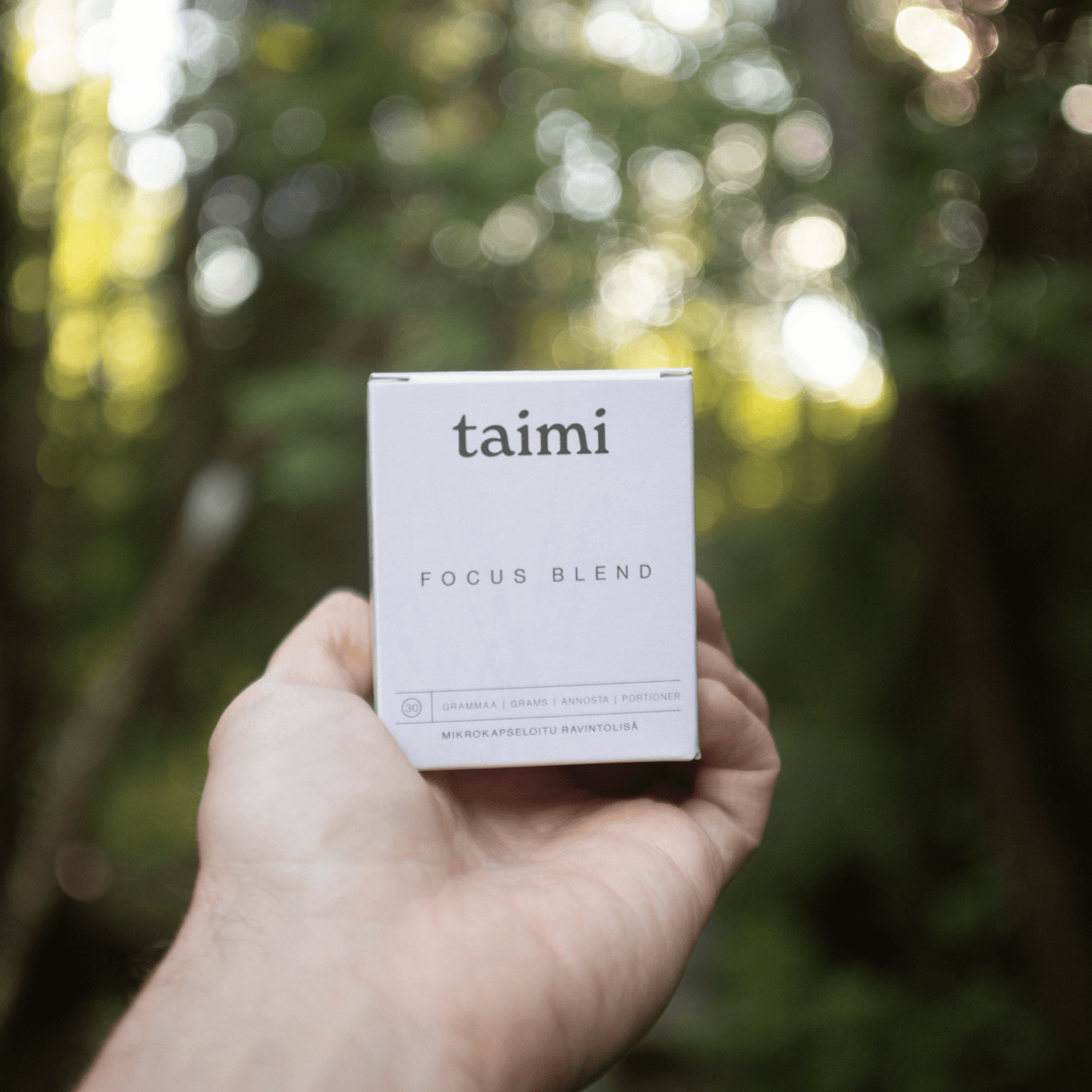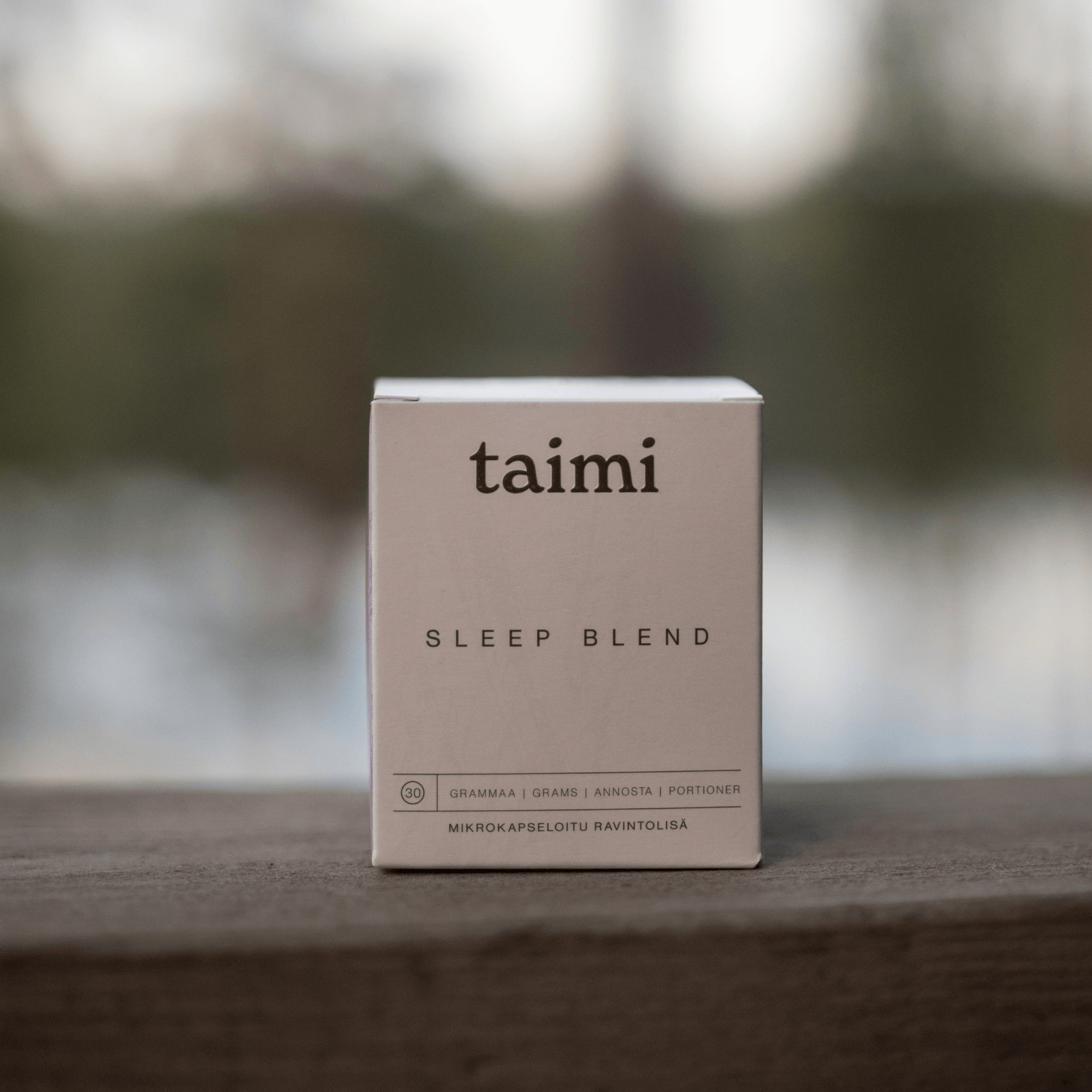Falling asleep and poor sleep quality are problems that plague almost everyone these days. Most people complain of some form of sleep disturbance, and the most common causes are:
- Insomnia (difficulty falling asleep and/or staying asleep)
- Sleep apnea (partial blockage of the airways during sleep)
- Drowsiness (low alertness during the day)
Sometimes the problem is so deep that it is recommended to visit your own well-being professional to investigate the matter. But often sleep challenges can be fixed with simple and inexpensive (or free) updates to your own sleep hygiene.
Key factors affecting falling asleep and sleep quality
Symptoms similar to insomnia (difficulty falling asleep or staying asleep) are often caused by watching screens (TV, computer, phone) and other artificial lights too late at night. Light, especially blue light produced by devices, blocks the brain's ability to produce melatonin. Melatonin is an important chemical that helps us fall asleep and keeps us asleep.
Drinking coffee or eating chocolate too late also makes it difficult to fall asleep, because xanthines such as caffeine (in coffee) and theobromine (in cocoa) stimulate the central nervous system and block adenosine receptors. Adenosine has a sleep-promoting effect, and when caffeine blocks it, it's harder for you to fall asleep, even if you're tired.
Stress (and anxiety) can also be a key factor in difficulty falling asleep and poor sleep quality. When you are stressed, your sympathetic nervous system (stress nervous system) is active and it is difficult for your body to relax and calm down.
Allergies and dust can cause nasal congestion and mucus in the throat can make breathing difficult, which can cause snoring, breathing problems and sleep apnea. Milk products in particular cause mucus and congestion in the throat and nose for many people. On the other hand, too dry air may dry out the mucous membranes, which makes breathing difficult and affects the quality of sleep.

Improve your sleep quality with these easy steps
Don't watch screens after 6 p.m
As I mentioned above, the blue light produced by screens is toxic to melatonin production. So keep watching screens to a minimum in the evening and do something else instead. Good options are playing board games and card games, putting together a puzzle, and reading books and magazines. Or just plain old dating.
Dim the lighting in the evening
Just like the light produced by the screens, the lamps also inhibit the production of melatonin. In the evening, it is therefore worth dimming the lighting. It helps the body to relax and calm down, and the brain to produce melatonin. Candles are an atmospheric and warm way to light up your home in the evening. A candlelit dinner and a board game together is a nice way to spend the evening and ensure quality sleep.
Don't watch the news in the evening
The news is mostly negative, and negative things scare and distress us. They wake up the nervous system, because the nervous system does not understand the concept of time and space, and anything negative that comes to consciousness through the news wakes up the nervous system and activates the mind. For the sake of good sleep quality (and calm mind), you should skip watching the news in the evening.
Do not drink caffeinated beverages after 2 p.m
Caffeinated drinks, coffee, tea energy drinks, make it difficult to fall asleep, which is why you should avoid them after 2 pm. The half-life of coffee (how long it takes for the substance in the body to be half of what it is now) is about six hours. That is, if at 2 pm you drink one cup of coffee (100 mg of caffeine), at 8 pm you have 50 mg of caffeine in your body and at 2 am, 25 mg.
Stop working early enough
Working too late may keep the nervous system overactive and make it difficult to fall asleep. Work matters - a million other things - and nothing comes of sleeping. Even if you do fall asleep, the overactive nervous system makes sure that the sleep does not become deep, so that the mind and body do not rest properly during the night. A good rule is that after dinner you don't work anymore unless you absolutely have to, and sometimes there is - the exception confirms the rules.

Meditate
Meditation is a good way to get to know yourself, calm your mind and body. Regular meditation harmonizes the brain, activates the parasympathetic nervous system (resting nervous system) and deactivates the sympathetic nervous system (stress nervous system). In this way, falling asleep becomes easier and the quality of sleep deeper. Here is a good and easy meditation exercise;
- Sit comfortably on a cushion or chair
- Keep your eyes closed
- Focus on your breathing (for example, watching how your lungs expand and contract automatically when you breathe, or notice how you feel your breath as a "wind wave" over your upper lip.
- When the mind "takes off" - and it does - bring your focus back to the breath.
That is one form of meditation in all its simplicity. Start with five minutes per day and increase the duration to the amount that suits you.
Do breathing exercises
Like the forms of meditation, there are also several different breathing exercises. Many breathing exercises are used in yoga, and Wim Hof, for example, has made breathing exercises popular all over the world with his own Wim Hof method . One of the most effective and easiest techniques to improve sleep quality is diaphragmatic breathing;
- Lie flat on your back (e.g. on a bed), put one hand on the chest and the other on the diaphragm (below the chest, just above it).
- Inhale calmly through the nose so that the hand on the diaphragm rises and the hand on the chest remains in place.
- Breathe out calmly through the mouth, squeezing the diaphragm/diaphragm in. The hand on the diaphragm descends and the hand on the chest remains in place.
- Repeat this for 5-10 minutes.
Diaphragm breathing reduces anxiety and nervousness by activating the parasympathetic nervous system and deactivating the sympathetic nervous system. Your mind calms down, you fall asleep better and sleep more deeply.
Use mouth and nose tape
If snoring is a problem for you, use mouth and nose tape. You can get them from a pharmacy and they are inexpensive. The mouth tape is placed on the lips and its purpose is to help you breathe through the nose. The nasal tape opens the nostrils, allowing more air to enter through breathing, thus facilitating breathing and promoting sleep quality. An excellent alternative is also the " nasal dilator " developed by Leigh Ewin, which can be ordered here .
Leave dairy products out of your diet
For many, dairy products cause mucus in the throat and stuffy nose (in addition to general inflammation). A strong recommendation is that you completely eliminate dairy products for one month and test if it helps with mucus and congestion. It is possible, even likely, that this small act will improve the quality of your sleep and your overall well-being. If one month without milk doesn't seem to bring improvement, then you may well reintroduce milk.
Eat an early dinner
Eat dinner early enough, and don't eat a heavy meal before going to bed. When the stomach is full of food, the body has to use a lot of resources to break it down. This makes it difficult to fall asleep and reduces the quality of sleep. A good rule is not to eat a big meal after 6 pm and eat something light in the evening if necessary, for example fruit.
Leave out the alcohol
In addition to all the other not-so-good things, alcohol has a detrimental effect on sleep quality. Even one dose in the evening reduces the quality of sleep the following night. So leave out the alcohol, or if you take one dose, drink enough of it before going to bed. For example, during dinner.
Keep the bedroom tidy
A clean bedroom also keeps the mind clean. Dust can irritate the nose and throat, making it difficult to sleep. So it's worth vacuuming and dusting the room regularly and often. Especially if you have other allergies or are sensitive to, for example, pollen. An air purifier can be a good investment in the bedroom. A good air purifier removes dust, allergens, odors and toxins (mold, chemicals, etc.) from the room air. Daikin is an excellent, but expensive, air purifier.

Keep the bedroom dark
A pitch-dark bedroom promotes sleep quality. Humans have photoreceptors even on their skin, and all light has a weakening effect on melatonin production. Functional blackout curtains are a special purchase. Switching off or taping different light sources (LED lights) etc. are also good solutions.
Turn off Wifi and put phones on airplane mode
Electromagnetic radiation caused by Wifi and phones also affects the nervous system negatively and prevents melatonin production. So it's worth turning off the Wifi router and putting the phone on airplane mode in the evening when you don't need them anymore. Closing these is also a good way to switch to "free" and take out that board game, and enjoy the time together.
Ensure suitable air humidity
Appropriate air humidity is an important factor for quality sleep. Especially in winter, the room air becomes drier and, for example, the air heat pump dries the room air. The air humidifier takes care that the room air remains sufficiently moist, so that the mucous membranes do not absorb it and the quality of sleep improves. The Finnish company Ufox makes high-quality and functional air humidifiers relatively inexpensively. The optimal air humidity for quality sleep is 40-60%.
Exercise regularly every day
Regular exercise every day helps you fall asleep at night and deepens your sleep. Movement does not have to be a lot, as long as it is regular and brisk enough. For example, a 30-minute brisk walk outside helps you fall asleep at night.
Keep a regular sleep pattern
Go to bed and wake up at the same time. The body loves routines and it learns regular routines very soon. If you go to bed at 10pm for a month, your body will learn that it is time to sleep and start preparing so that at 10pm you will be tired and fall asleep easily. Likewise waking up, if you always wake up at 6, your body will learn this and wake up refreshed at 6.
Spend the morning outside in the sunshine
Spend time outdoors in natural light. The sun and bright light "reset" the internal clock (circadian rhythm), which regulates the sleep-wake rhythm and related hormonal activity. Sunlight tells your body that it's daytime. Darkness tells you it's night. And the body regulates hormonal activity accordingly. In the dark days of winter, a bright light lamp (and an alarm clock ) is an excellent way to keep the internal clock on time and the body and mind awake. An additional advantage of (this) bright light alarm clock is that you can wake up to birds singing or the sound of the sea instead of a traditional beep.

Use Sleep Blend in the evening
Taimin's Sleep Blend is (possibly even) the highest quality single supplement product for improving sleep quality. It is designed to relax the nervous system, calm the mind, help falling asleep, and support melatonin production. It activates the parasympathetic nervous system, so you sleep deeper and wake up rested.
What are your favorite techniques for improving sleep quality?

